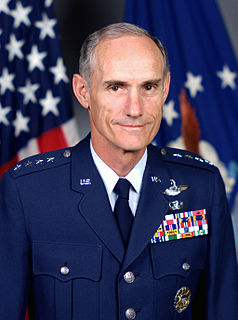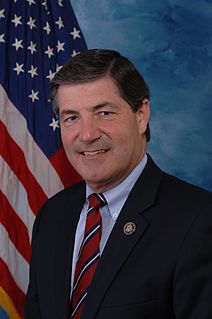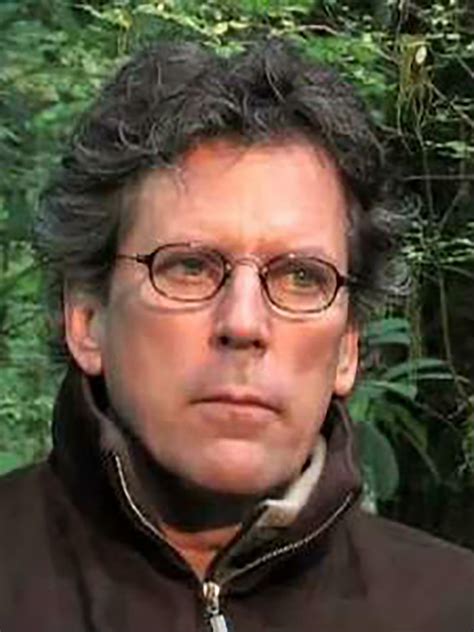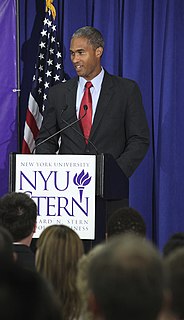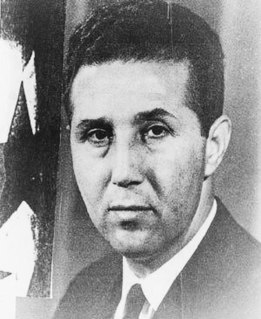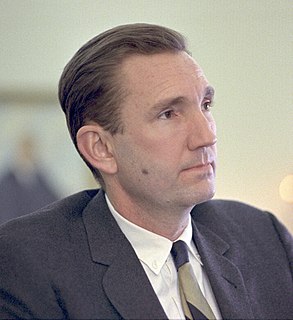Top 120 Multinational Quotes & Sayings - Page 2
Explore popular Multinational quotes.
Last updated on April 19, 2025.
The main mineral in your cellphone, coltan [a black metallic ore], comes from the Eastern Congo. Multinational corporations are there exploiting the very rich mineral resources of the region. A lot of them are backing militias which are fighting one other to gain control of the resources or a piece of the resources.
While we have been presented several opportunities to be acquired by multinational corporations, we are most excited that our collaboration with Bain Capital fulfills our commitment to remain an independent family-owned and operated company with a purpose-driven business model that puts community at our core.
The Trilateralist Commission is international...(and)...is intended to be the vehicle for multinational consolidation of the commercial and banking interests by seizing control of the political government of the United States. The Trilateralist Commission represents a skillful, coordinated effort to seize control and consolidate the four centers of power - political, monetary, intellectual, and ecclesiastical.
The international community must do a better job of controlling the risks of nuclear proliferation. Sensitive parts of the nuclear fuel cycle - the production of new fuel, the processing of weapon-usable material, the disposal of spent fuel and radioactive waste - would be less vulnerable to proliferation if brought under multinational control.
I joined a very male-dominated profession back in 1986. I wanted to work with big multinational Fortune 500 companies, but you don't come into the firm and automatically get those. So, quite frankly, a key to my success was that I found male mentors and male sponsors. I think some women are afraid to say that.
All the studios are owned by multinational corporations, which are not usually bastions of the left. So all the actors, writers, and directors - or at least a great majority of them - live in fear because we're all insecure, we all want that next job, we all want to be loved, and we don't want to piss off some studio chief who won't hire us for the next movie.
Here’s a secret intel bulletin for all y’all who’ve never left Yoknapatawpha County and imagine the United States is constantly on the precipice of enemy invasion—the only way this country is ever going to surrender its liberty to a foreign power is if it keeps electing corrupt officials who auction it away to multinational corporations and overseas government interests in exactly the fashion that southern star chambers have been doing to their own people throughout their entire dyspeptic history.
The largest 100 corporations hold 25 percent of the worldwide productive assets, which in turn control 75 percent of international trade and 98 percent of all foreign direct investment.The multinational corporation...puts the economic decision beyond the effective reach of the political process and its decision-makers, national governments.
The United Nations was the thing I wanted to work for. Like the United Nations Commission for Refugees is what I was interested in. And then people said if you do that you'll hit glass ceilings all the time, because you are not Ghanian or Nigerian and that's the way to progress though a multinational organization like that. In any event, they said do five years' legal experience and come back. And after five years I decided to stay where I was. So I am really an accidental lawyer.
Wake up, America. The insurance companies took over health care. Wake up, America. The pharmaceutical companies took over drug pricing. Wake up, America. The speculators took over Wall Street. Wake up, America. They want to take your Social Security. Wake up, America. Multinational corporations took over our trade policies, factories are closing, good paying jobs lost. Wake up, America. We went into Iraq for oil.
There is ...a huge tacit conspiracy between the U.S. government, its agencies and its multinational corporations, on the one hand, and local business and military cliques in the Third World, on the other, to assume complete control of these countries and "develop" them on a joint venture basis. The military leaders of the Third World were carefully nurtured by the U.S. security establishment to serve as the "enforcers" of this joint venture partnership, and they have been duly supplied with machine guns and the latest data on methods of interrogation of subversives.
One of the symptoms of an absence of innovation is the fact that you lose your jobs. Everyone else catches up with you. They can do what you do better than you or cheaper than you. And in a multinational corporate-free market enterprise, it is the company's obligation to take the factory to a place where they can make it more cheaply.
The E.U. is the latest of a series of multinational organizations set up after World War II to ensure that there would never again be a pan-European war and to create the conditions for a new European prosperity after the destruction wrought by the war against the Nazis. The E.U. has admirably succeeded at both.
Globalization has produced a new of level of interdependence among us. The economy and multinational supply chains do not abide by political boundaries. A computer ordered in Brazil is designed in California and assembled in several other countries. Economic integration was the first strong evidence of a new era.
In Globalization 1.0, which began around 1492, the world went from size large to size medium. In Globalization 2.0, the era that introduced us to multinational companies, it went from size medium to size small. And then around 2000 came Globalization 3.0, in which the world went from being small to tiny.
I was getting mad at the system or the politicians or the government, and then I realized someone should talk about this stuff, and I have a big, multinational global-youth platform of kids who are going to change the world. So I was like, "I should be doing that. I should be showing this to people. That's my job." And since that time, I've been very happy.
We are not hated because we practice democracy, value freedom, or uphold human rights. We are hated because our government denies these things to people in Third World countries whose resources are coveted by multinational corporations. That hatred we have sown has come back to haunt us in the form of terrorism....
Incidentally, I don't think there is a non-adjectival 'globalisation'. What we have now is a particular form: dominated by finance and multinational corporations and by a rhetoric (though not a reality) of 'free trade' and market forces. So I'm not a localist. I'm an internationalist, but one who believes (a) that such a thing is really only possible through a prior grounding and (b) that the terms of our present globalisation have to be challenged politically.
David Rockefeller is the most conspicuous representative today of the ruling class, a multinational fraternity of men who shape the global economy and manage the flow of its capital. Rockefeller was born to it, and he has made the most of it. But what some critics see as a vast international conspiracy, he considers a circumstance of life and just another day's work... In the world of David Rockefeller it's hard to tell where business ends and politics begins
The worst illiterate is the political illiterate. He hears nothing, sees nothing, takes no part in political life. He doesn't seem to know that the cost of living, the price of beans, of flour, of rent, of medicines all depend on political decisions. He even prides himself on his political ignorance, sticks out his chest and says he hates politics. He doesn't know, the imbecile, that from his political non-participation comes the prostitute, the abandoned child, the robber and, worst of all, corrupt officials, the lackeys of exploitative multinational corporations.
Our lack of community is intensely painful. A TV talk show is not community. A couple of hours in a church pew each Sabbath is not community. A multinational corporation is neither a human nor a community, and in the sweatshops, defiled agribusiness fields, genetic mutation labs, ecological dead zones, the inhumanity is showing. Without genuine spiritual community, life becomes a struggle so lonely and grim that even Hillary Clinton has admitted "it takes a village".
Governments have been ceding power to big multinational corporations in the market. We see the manifest in a variety of ways. Where governments are giving up power to big international institutions like the World Trade Organization or NAFTA, which are disabling governments' ability to protect the rights of their own people.
With unfailing consistency, U.S. intervention has been on the side of the rich and powerful of various nations at the expense of the poor and needy. Rather than strengthening democracies, U.S. leaders have overthrown numerous democratically elected governments or other populist regimes in dozens of countries ... whenever these nations give evidence of putting the interests of their people ahead of the interests of multinational corporate interests.
Salmon farming-the placement of large metal or mesh net cages in the ocean to grow fish-was pioneered in Norway in the 1960s. Since then, the industry has expanded to Scotland, Ireland, Canada, the US, and Chile, but is dominated by the same multinational corporations. Wherever it is practiced, net-cage salmon farming is controversial and raises serious environmental concerns.
As a result of the Stratfor hack, some of the dangers of the unregulated private intelligence industry are now known. It has been revealed through Wikileaks and other journalists around the world that Stratfor maintained a worldwide network of informants that they used to engage in intrusive and possibly illegal surveillance activities on behalf of large multinational corporations.
And Alaska - we're set up, unlike other states in the union, where it's collectively Alaskans own the resources. So we share in the wealth when the development of these resources occurs. It's to maximize benefits for Alaskans, not an individual company, not some multinational somewhere, but for Alaskans.
He [Osama bin Laden] is clearly an odd combination of a 12th-century theologian and a 21st-century CEO. He runs an absolutely unique organization in the Islamic world. It's multiethnic, multilinguistic, multinational. He is a combat veteran, three times wounded. He has a huge reputation in the Islamic world for generosity and leadership. He's a man who speaks eloquent, almost poetic Arabic, according to Bernard Lewis.
Democracy is just a word. You have to give it meaning. The US is not a democracy. Most Americans do not vote. We haven't had a real choice for a long, long time now. Wealth rules. Corporations rule. The US is a plutocracy - government by wealthy people. Certain people control multinational corporations. You couldn't get elected in the US without lots of money.
Are you an action-oriented, take-charge person interested in exciting new challenges? As director of a major public-sector organization, you will manage a large armed division and interface with other senior executives in a team-oriented, multinational initiative in the global marketplace. Successful candidate will have above-average oral-presentation skills
















